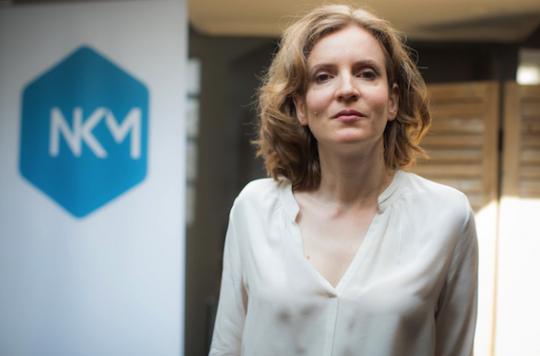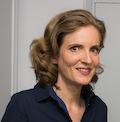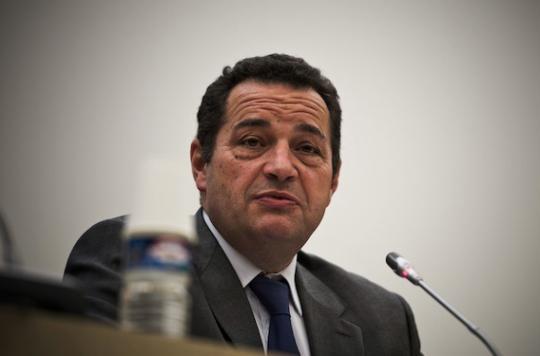The 7 candidates for the primary from the right and from the center answer the questions of Pourquoidocteur. This Monday, the series begins again with Nathalie Kosciusko-Morizet.

While the right and center primary for the presidential election will take place on November 20 and 27, the time for the first of three television debates is fast approaching. With a river duration of 2h30, it will take place on October 13 on TF1, RTL, Public Senate and LCI. It will see the seven competitors compete against each other on the themes of unemployment and security. And what about health?
In a recent poll, 69% of French people make this theme a major element of the campaign. And almost the same proportion of those questioned considers that the positions of the candidates on health policy will be decisive in their choice.
To meet the expectations of future voters, the drafting of Why actor interviewed all candidates, asking them the same questions. This Monday, the series begins again with Nathalie Kosciusko-Morizet. Does the slogan “New society, New France” also want to modernize our health system? Response on subjects as varied as assisted reproduction, medical deserts, the price of innovative drugs, etc.
The community will no longer be able to cover the cost of innovative drugs. Should we devote a specific budget to the support of these therapies, and how to finance it?
Nathalie Kosciusko-Morizet : It is through innovation that the efficiency gains in our health system will come. We must seek to make possible the integration of innovations into our health system while controlling the expenditure budget. Several points are to be considered:
– how to set the right price for an innovative drug : the industrialist needs to obtain a fair return on his investment in R&D, and the State must be able to finance the diffusion of innovation without compromising the balance of its public finances
– demonstrate innovation in drug governance and funding methods: I think the State should set public health priorities but the processes could be entrusted to a body led by the funder; health insurance
– set up dynamic management of service baskets and health products reimbursed by social security: there is an annual selection process to be done to ensure that public money is used to fund innovative molecules as a priority. This should translate into greater development of the self-medication and generic market.
 |
Medication
|
The complementary health insurance is committed to an insurance model à la carte. Should we financially encourage policyholders who have a healthy lifestyle (diet, physical activity, etc.) and / or penalize those who take risks (alcohol, tobacco, etc.)?
Nathalie Kosciusko-Morizet : A la carte health insurance is of marketing interest for insurers but carries the risk of excluding those who really need it from the insurance market. Insurers do not have to play the role of operators of care, or of life. My health program includes a structural reform to overhaul our health financing system. I propose to have only one funder per health service.
A regulation of private financing should be put in place to guarantee equal access to financed care. First, I propose to establish a standard homogeneous contract subscribed by each French but whose guarantees will be defined each year within the PLFSS. The competition between private insurers will make it possible to optimize the premiums and the services associated with this contract. The existing social assistance systems will be kept for the poorest. A regulatory agency for private health insurance will be created to protect the rights of policyholders and ensure that risks are not selected.
 |
Supported
|
The hospital must simultaneously reconcile medical excellence with its social missions. In view of the budgetary constraints, does activity-based pricing (T2A) appear to you to be suited to this dual requirement?
Nathalie Kosciusko-Morizet : It is necessary to reconcile care with efficiency and good management while maintaining a humanist approach to care, and not transforming hospitals into care factories.
T2A was a positive step forward in the funding of hospitals, but one of its flaws was that it did not introduce quality criteria in the funding of procedures. However, as for city care, regulation must be done more on quality and less on volume. The current system must be supplemented with quality indicators.
T2A does not seem to me to be the main culprit of the social tension that reigns within the public hospital. Excess bureaucracy and hospital models unsuited to new needs and new technologies are at least as strong reasons.
 |
Hospital
|
One in four general practitioners will not be replaced by 2025. How do you plan to fight against medical deserts?
Nathalie Koscisuko-Morizet : It is the public policies of recent years that have created medical deserts, by not encouraging young people to settle in certain territories. Young people want modern medical practice, using digital tools, giving them flexibility and a balanced life. Nothing incompatible with the liberal exercise which must be encouraged and supported like any small business. Let us leave each professional free in his choice of exercise.
To give back to city medicine its letters of nobility, I am also campaigning for the creation of university ambulatory centers (CAU), which will make it possible to extend the prerogatives of teaching and research to city ambulatory centers. The CHU would maintain supervision over the teaching and research programs of the CAU. By carrying out all their clinical training in outpatient structures in town and country, the young interns will weave a social network in these areas, which will promote their installation. The CAUs will thus strengthen the economic model of the ambulatory structures concerned.
 |
Medical deserts
|
In a manifesto, French doctors admitted having helped lesbian couples and single women to resort to assisted reproduction abroad. Can we continue to reserve it for heterosexual couples?
Nathalie Kosciusko-Morizet : For me, the limit is the unavailability of the human body. This closes the door to surrogacy but does not oppose assisted reproduction, which I do not see clearly in the name of what we would refuse to homosexual couples, who are otherwise free to adopt and therefore raise a child together..
Tomorrow find our interview with Jean-Frédéric Poisson
.














